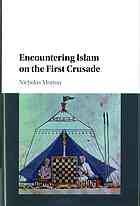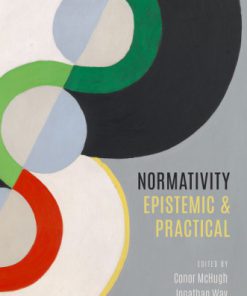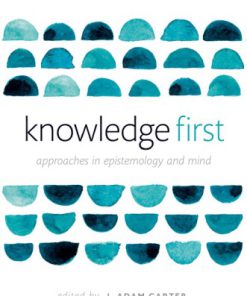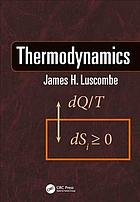Metaepistemology 1st Edition by Conor McHugh,Jonathan Way,Daniel Whiting 9780198805366 0198805365
$50.00 Original price was: $50.00.$25.00Current price is: $25.00.
Metaepistemology 1st Edition by Conor McHugh,Jonathan Way,Daniel Whiting – Ebook PDF Instant Download/Delivery:9780198805366,0198805365
Full download Metaepistemology 1st Edition after payment

Product details:
ISBN 10:0198805365
ISBN 13:9780198805366
Author:Conor McHugh,Jonathan Way,Daniel Whiting
Epistemology, like ethics, is normative. Just as ethics addresses questions about how we ought to act, so epistemology addresses questions about how we ought to believe and enquire. We can also ask metanormative questions. What does it mean to claim that someone ought to do or believe something? Do such claims express beliefs about independently existing facts, or only attitudes of approval and disapproval towards certain pieces of conduct? How do putative facts about what people ought to do or believe fit in to the natural world? In the case of ethics, such questions have been subject to extensive and systematic investigation, yielding the thriving subdiscipline of metaethics. Yet the corresponding questions have been largely ignored in epistemology; there is no serious subdiscipline of metaepistemology. This surprising state of affairs reflects a more general tendency for ethics and epistemology to be carried out largely in isolation from each other, despite the important substantive and structural connections between them. A movement to overturn the general tendency has only recently gained serious momentum, and has yet to tackle metanormative questions in a sustained way. This edited collection aims to stimulate this project and thus advance the new subdiscipline of metaepistemology. Its original essays draw on the sophisticated theories and frameworks that have been developed in metaethics concerning practical normativity, examine whether they can be applied to epistemic normativity, and consider what this might tell us about both.
Metaepistemology 1st Table of contents:
1. Epistemic Concepts and Properties: Normative versus Descriptive
2. Epistemic Judgments: Cognitivism versus Non-Cognitivism
3. Epistemic Facts: Realism versus Error Theory
4. Conclusion
1. The Costs of Epistemic Realism
1. Introduction
2. The Perspective Objection
3. Realism and Reason-Responsiveness
4. True Belief as a Central Epistemic Goal
5. The Problem of Non-Convergence
6. Widespread Irrationality or Cognitive–Behavioural Incoherence
7. Conclusion
2. Defending the Moral/Epistemic Parity
1. Introduction
2. The Case for the Disparity Thesis
3. The First Stage: Three Points of Hesitation
4. The Second Stage: Employing the OQA
5. The Third Stage: Probability
6. Prospects for Reduction
3. Passing the Epistemic Buck
1. Introduction
2. General Buck-Passing
3. Epistemic Buck-Passing
4. Conclusion
4. Is Epistemology Autonomous?
1. Introduction
2. Judgment Internalism in Epistemology
3. Judgment Internalism and Epistemic Levels
4. From Judgment Internalism to Epistemic Expressivism
5. Epistemic Expressivism and the Internalism/Externalism Debate
6. Conclusions
5. Logical Disagreement
1. Introduction
2. Contextualism
3. Relativism
4. Expressivism
5. Implications for Philosophical Logic and Meta-Ethics
6. Moral and Epistemic Error Theory: The Parity Premise Reconsidered
1. Introduction
2. Preliminaries: Reasons, the Parity Premise, and Companions in Guilt Arguments
3. Moral Error Theory and Knowledge
4. The Parity Premise and Epistemic Error Theory Reconsidered
7. Doubts about “Genuinely Normative” Epistemic Reasons
1. Introduction
2. Epistemic Reasons, Evidence, and the Instrumentalist/Intrinsicalist Debate
3. The Doubts
4. Conclusion
8. How to Be an Epistemic Expressivist
1.
2.
3.
9. Thick Epistemic Concepts
1. What Are Thick Concepts?
2. Why Does the Existence of Thick Epistemic Concepts Matter?
3. The Case against Thick Epistemic Concepts
4. The Normative and the Normatively Significant
5. Normative and Partly Normative Domains
6. Evaluation and Thick Concepts
7. The Range of Options
10. Epistemic Planning, Epistemic Internalism, and Luminosity
1. Epistemic Planning and Meta-Epistemology
2. Epistemic Planning and Epistemic Internalism
3. The Distinguishability Constraint
4. Externalist and Internalist Responses
5. A Better Internalist Response
6. Internalist Plans and Luminosity
11. Believing Well
1. Acting Well versus Doing the Right Thing
2. The Priority Thesis
3. The Argument from Games
4. Knowledge Is Believing Well
5. Corollaries
People also search for Metaepistemology 1st :
a metaphysics of psychopathology
metaphysical and epistemological
metaphysical epistemology
the metamorphosis first edition
metamorphosis epub
Tags:
Conor McHugh,Jonathan Way,Daniel Whiting,Metaepistemology
You may also like…
Poetry - American Poetry
The Palgrave Handbook of Animals and Literature Susan Mchugh
Medicine
History - World History
Encountering Islam on the First Crusade First Paperback Edition. Edition Morton
History - Military History
The Retreat Hitler s First Defeat First Edition Jones Michael
Politics & Philosophy
Knowledge First: Approaches in Epistemology and Mind First Edition. Edition Carter
Science (General)












